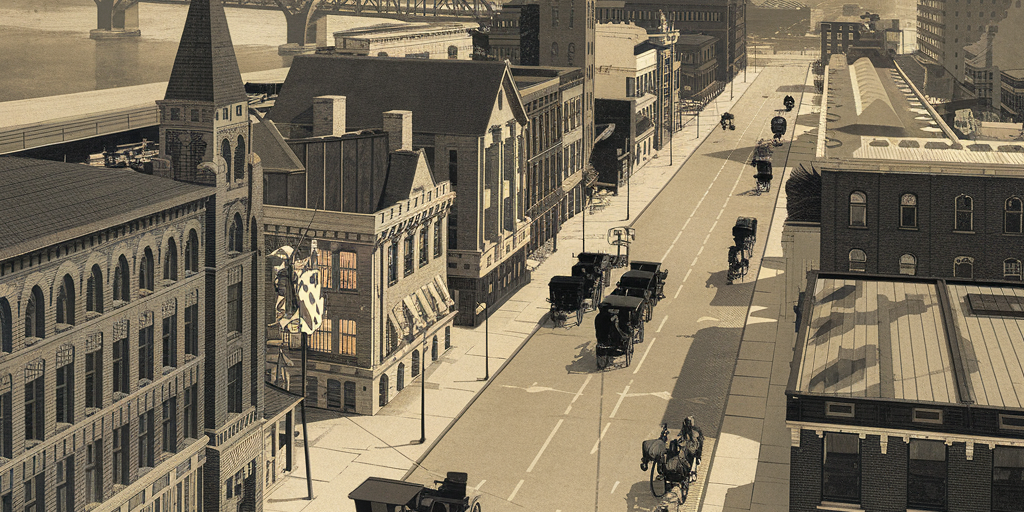Introduction: A Legacy of Resilience and Enterprise
While Pittsburgh’s industrial history is often told through the stories of steel barons and industrial titans, there exists a lesser-known but equally important narrative — that of Pittsburgh’s early Black entrepreneurs. Amidst the harsh realities of slavery, segregation, and discrimination, Black men and women built businesses, created jobs, and laid the groundwork for future generations of African American success in the city.
This is their story — a testament to perseverance, innovation, and the unbreakable spirit of entrepreneurship.
Early Roots: Black Entrepreneurship in Antebellum Pittsburgh (1800-1865)
Freedom and Opportunity in a Border City
By the early 1800s, Pittsburgh had become a critical stop on the Underground Railroad. Its location just north of the Mason-Dixon Line made it a haven for freed and escaped slaves seeking new lives.
As early as 1820, census records show a growing population of free African Americans in Pittsburgh, many of whom turned to entrepreneurship out of necessity due to exclusion from many trades.
Common Early Black-Owned Businesses:
- Barbershops: A vital center of Black community life. Barbering was one of the few trades where Black men could thrive.
- Livery stables and drayage: Transportation businesses moving goods through Pittsburgh’s rivers and streets.
- Laundry services and seamstresses: Black women found work — and independence — through these essential services.
- Catering and food services: Including well-known figures like John B. Vashon, who owned a successful bathhouse and barber shop.
Prominent Figures: Pittsburgh’s Black Business Pioneers
John Bathan Vashon (1792-1853)
- A free-born African American, Vashon was a successful barber, entrepreneur, and abolitionist.
- Owned one of Pittsburgh’s most profitable barber shops and a popular public bathhouse.
- Known for employing other Black men and mentoring younger entrepreneurs.
- Became one of the wealthiest Black men in Pennsylvania of his time.
George B. Vashon (1824-1878)
- Son of John B. Vashon.
- First Black graduate of Oberlin College.
- Practiced law, taught, and became an important intellectual and advocate for civil rights — representing a second generation of educated Black professionals.
The Growth of Black Enterprise During Reconstruction and Industrial Expansion (1865-1900)
As Pittsburgh boomed with steel and manufacturing, Black entrepreneurs carved out new spaces despite enduring discrimination:
Business Sectors:
- Funeral homes: A growing profession that allowed Black families to serve their own community with dignity.
- Black newspapers: Papers like The Pittsburgh Courier’s early predecessors gave Black entrepreneurs a voice and platform.
- Entertainment and social clubs: Black entrepreneurs opened theaters, dance halls, and clubs catering to the growing urban Black population.
Challenges:
- Redlining and restrictive laws limited access to capital and property.
- Exclusion from white unions and skilled trades pushed many Black workers toward self-employment.
Still, Pittsburgh’s Black business owners thrived in niche industries, often reinvesting profits into the community.
The Pittsburgh Courier and the Rise of Black Media (1900s-1930s)
One of the most impactful Black-owned businesses was the founding of The Pittsburgh Courier in 1907 by Edwin Harleston:
- Became one of the nation’s most influential Black newspapers.
- Covered Black-owned businesses, civil rights, sports, and culture.
- Helped launch the careers of writers, editors, and entrepreneurs.
The Courier exemplified how Black media supported local businesses and built national influence from Pittsburgh.
Lasting Impact: Building the Foundation for Future Generations
Pittsburgh’s early Black entrepreneurs created a foundation for:
- Black banks and financial institutions in the 20th century.
- Political and civil rights leadership that would fuel Pittsburgh’s role in the broader fight for equality.
- A culture of self-reliance and enterprise still visible in Hill District businesses, churches, and cultural institutions.
Many descendants of these early entrepreneurs became professionals — lawyers, doctors, and educators — continuing their ancestors’ legacy of resilience.
Conclusion: Honoring a Hidden History
The story of Pittsburgh’s Black entrepreneurs is one of grit, ingenuity, and quiet triumph in the face of enormous obstacles. These men and women didn’t just build businesses — they built community, pride, and opportunity where there was none.
Their contributions laid the groundwork for future generations of Black entrepreneurs and remain a vital part of Pittsburgh’s economic and cultural history — a legacy worth celebrating and preserving.









